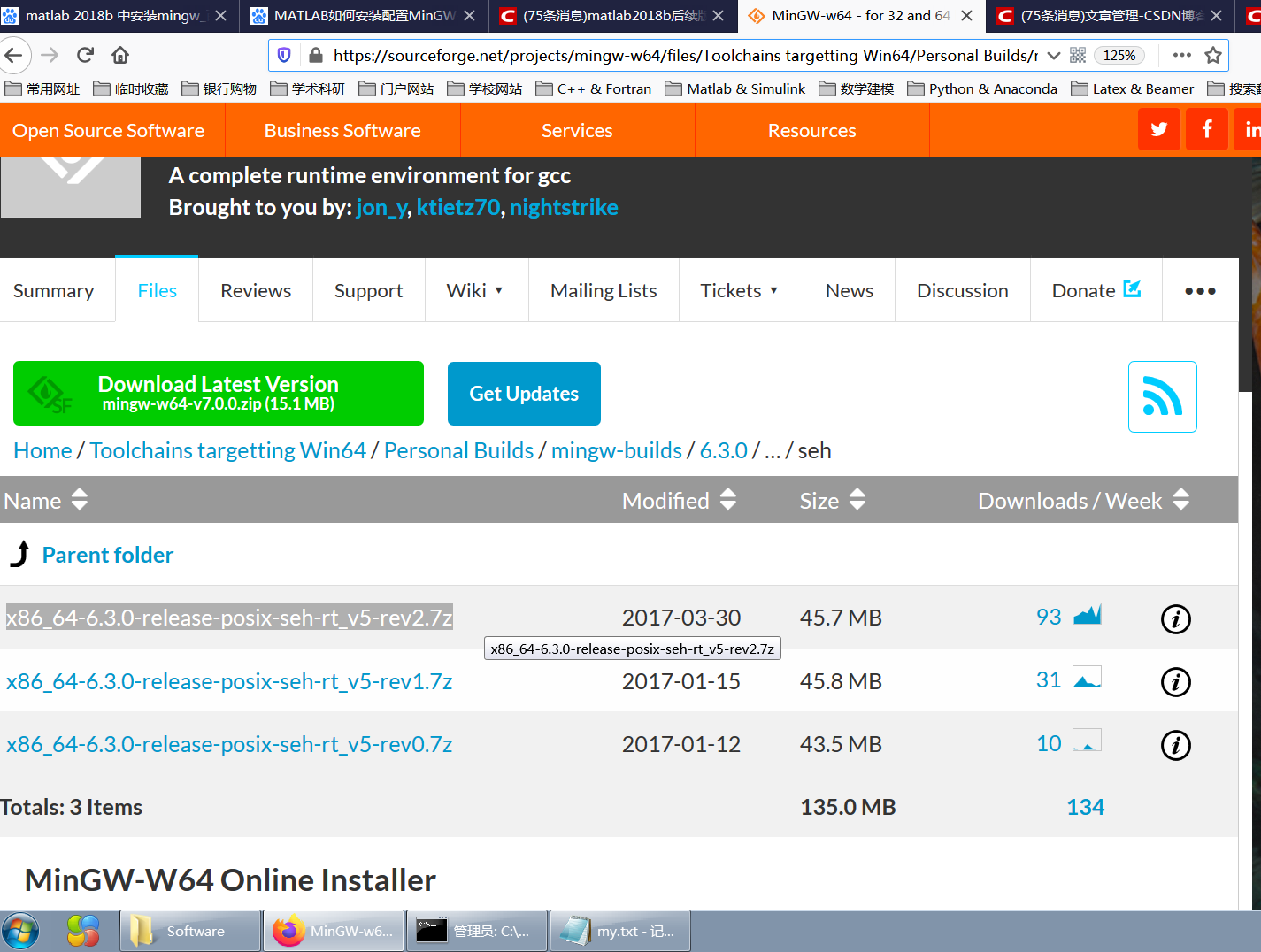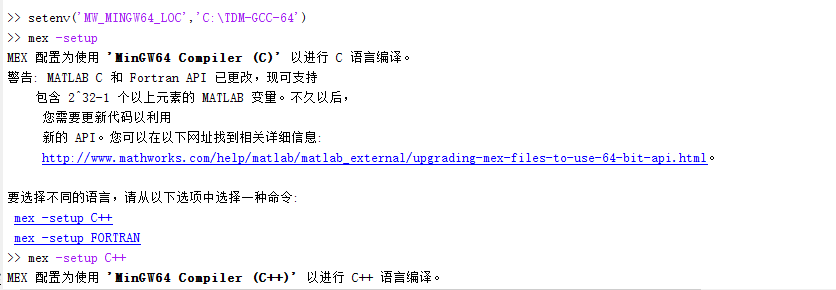
There's a comment in the XML template about this. If you don't want to copy these files around, you can statically link the runtime libraries into your MEX file by adding the following switches: -static-libgcc -static-libstdc++ Libraries such as a MEX file created with MinGW-w64 as above may depend on a few DLLs (at runtime): LIBGCC_S_SEH-1.DLL (for the seh exception distributions) and LIBSTDC++-6.DLL, and possibly libwinpthread-1.dll if you chose a pthreads distribution instead of Win32 threads. "x86_64-w64-mingw32-gcc.exe" which won't automatically link the C++ standard library), adjust the link libraries as needed, compiler flags (e.g. If needed, set up the C compiler in a similar manner with a new XML config file specifying the C language, the C compiler frontend (e.g. MEX configured to use 'MinGW-w64 GCC 4.9.2 posixthreads seh' for C++ language compilation. Mex -setup:H:\building\GitHub\MATLAB\MinGW\mex_C++_mingw-w64.xml C++ xml file to set up C++ MEX file compilation: setenv('MINGWROOT','H:\mingw-w64\x86_64-4.9.2-release-posix-seh-rt_v3-rev1') Run mex -setup:C:\actual\configFilePath.xml C++.
#MATLAB 2018B MINGW WINDOWS 7#
You can do this in MATLAB (and every time MATLAB starts with a startup.m script in userpath) with setenv, or just once with the Windows properties dialog or the native Windows 7 setx.exe command. This is what allows the mex command to locate the compiler.
#MATLAB 2018B MINGW DOWNLOAD#

What has stayed the same is that you just need to download and extract a MinGW distribution and point MATLAB to it. Another change is that are distinct C and C++ configurations (more later). bat files, for now, but it will bother you about it. MATLAB still temporariily supports legacy. The years have gone by and MATLAB (as of R2014a) has moved to a new XML-based system for configuring MEX files. don't link with libraries compiled with other compilers, you have to catch your exceptions inside the MEX file, etc.).īelow is my old way of making an XML file to do the same thing. There are several limitations and caveats listed (e.g. See here for the official instructions for downloading MinGW (they recommend TDB-GCC). It's now at the top of the list of supported compilers.

See my homepage for details and downloads.Īs of MATLAB R2015b, MinGW is officially supported!
#MATLAB 2018B MINGW CODE#
Good luck!ĮDIT Oct 2014: I now use an improved mexopts.bat file than the above with a different MinGW64 (yields slightly faster binary code than TDM's). Should yield b:\code\m\xw64 (or whatever the current folder is). Then you can just try doing this in Matlab: mex -v p:\matlab\R2012a\extern\examples\mex\yprime.c Set NAME_OUTPUT=-o "%OUTDIR%%MEX_NAME%%MEX_EXT%" Set LINKFLAGS=-shared -L"%MATLAB%\bin\win64" -L"%MATLAB%\extern\lib\win64\microsoft" -lmex -lmx -leng -lmat -lmwlapack -lmwblas

Set COMPFLAGS=-c -m64 -I"%MATLAB%\extern\include" -DMATLAB_MEX_FILE -Wall -std=c99 This is the mexopts.bat file I'm using, copy paste this in %USERPROFILE%\AppData\Roaming\MathWorks\MATLAB\R2012a\mexopts.bat: off I have Matlab installed in p:\matlab\R2012a - edit those accordingly. I'm using the TDM Mingw64 distribution, which I installed in p:\mingw64-tdm.

The file below is for 圆4 version of Matlab and Mingw. Why not adjust the mexopts.bat file in your directory? That way you can use the "mex" command transparently to compile anything, as usual in MATLAB, the same as if it was configured by MATLAB using mex -setup.


 0 kommentar(er)
0 kommentar(er)
